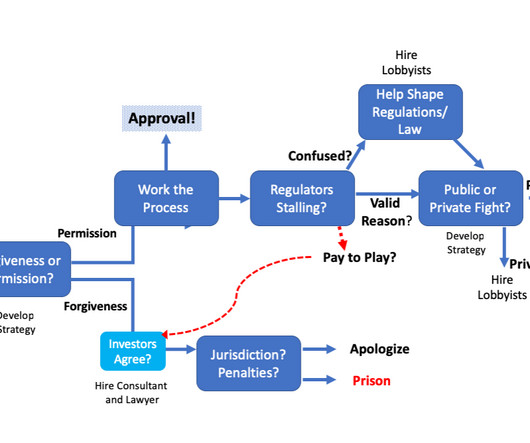If You Don’t Respect Your Customers You Won’t Be Successful
Both Sides of the Table
DECEMBER 7, 2014
I spend a lot of time with startups and thus hear many companies talk about their approach to sales and their interactions with customers. From these meetings you can really tell the leaders that care deeply about their customers and those the look down on them. You’d be very wrong. Contrast that with a VC conversation I had.









































Let's personalize your content